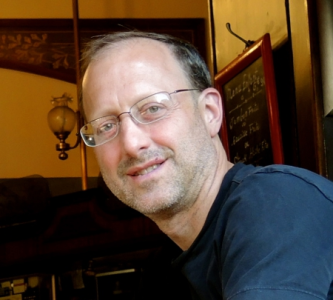
- Todd Reeser - Transgender Universalism in France
Alongside other projects, I am in the process of developing a book project on the concept of transgender universalism. If the French nation-state has aimed since the Revolution to consider its citizens as citizens first and to relegate other identity categories to second place (gender, race, ethnicity, sexuality, etc.), I ask what has happened over time to transgender citizens in this French model of political identity. I spent four months in the archives in Paris and elsewhere in France working through transgender representation in TV, film, documentary, tabloid journalism, autobiography, medicine, law, theater, and novels from the 1950s until today. Having already published articles on French transgender film and fiction of the 21st century, I am now working on incorporating this archival work to extend my project back in time and to think about how to marry gender/queer/transgender theory, political theory, and specific French cultural artifacts from the 50s to today. I am especially interested in how representations of transgender citizens produce French universalism in unexpected ways. Currently, I am writing a chapter on how the Moroccan context contributes to this question since Casablanca was a trans capital.

- Giuseppina Mecchia - Romantic Capitalist Crisis/Uses of the Sublime/Italian Female Authorship
I am pursuing a study of French romantic esthetics as a response to the cognitive, affective and political challenges of the rise of the capitalist mode of social organization. My first article on this subject was on Stendhal: as I keep working on this author, I am also developing arguments regarding Chateaubriand. I make use of recent Italian political and economic theorists such as Maurizio Lazzarato and Christian Marazzi, while using the political esthetics of Jacques Rancière as well as classical definitions of the sublime. I am also finishing up an article on the Italian writer Natalia Ginzburg, and her recasting of the figure of Alessandro Manzoni, the greatest Italian romantic writer, in the context of her 20th-century quest for legitimacy as a female writer and public intellectual.
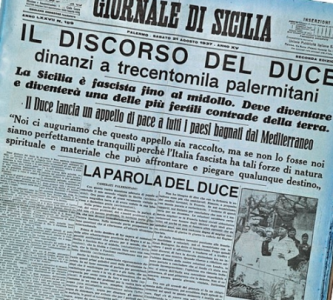
- Lina Insana - Charting the Island
My current project, a book-length manuscript entitled “Charting the Island: Position and Belonging in Sicily from Unification to the Union,” sketches out the spatial rhetorics by which Sicilian cultural production shapes the island’s position and belonging to configurations of identity like “Italy,” the “Mediterranean,” the “South,” and “Europe.” Focusing on three big-picture and high-stakes moments in Sicilian history—the 1908 Earthquake of Messina and Reggio Calabria; the ventennio nero; and Italy’s entry into the European Union—my project likens Sicilian belonging to spatially-inflected tropes like ellipsis, synecdoche, and anaphora. The cultural products I examine are wide-ranging and diverse, allowing the project to embrace both literary and non-literary texts from the last hundred years or so: Messina's post-earthquake urban shantytown; Mussolini’s 1937 visit to Sicily to project military force from the island to war-torn Spain on one hand and its nascent Empire on the other; the proposed construction of the Bridge of the Straits; the political theatre of immigration and the symbolic valence of Lampedusa.
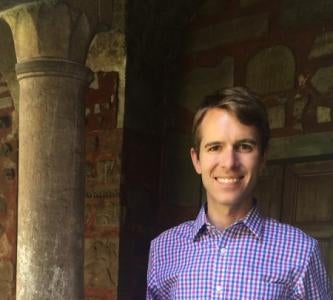
- James Coleman - Reading Archipelagos: Italian Humanism and Renaissance Books of Islands
Among other projects, I am currently researching the genre of book known as the isolario (book of islands). These curious books, which first emerged in fifteenth-century Italy, allowed readers to virtually navigate islands and archipelagos through a curious blend of visual and textual representations. Maps and navigational aids, travel narratives and advice for wayfarers, archaeology and epigraphy, poetry and mythology, ancient history and current events, natural history and ethnography – all of these elements were integrated into Renaissance isolari. My work examines isolari in relation to Mediterranean geopolitics and transcultural exchange, and traces connections between the Renaissance isolari and fourteenth-century humanist antecedents by Boccaccio, Petrarch, and Domenico Silvestri. Studying the uses of these island texts across transnational readership communities, and analyzing the representations of movements of peoples within them, the project aims to shed new light on the transcultural networks that defined the archipelagos of the early modern Mediterranean
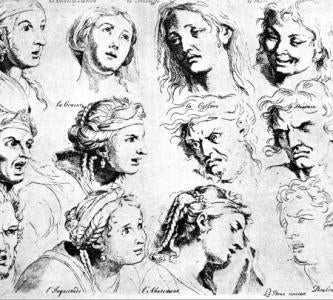
- Chloé Hogg - The Emotions of Absolutism
Seventeenth-century France has been called the Age of Reason and the Age of Absolutism, but it was the age of emotion as well. Descartes claimed the passions as a distinctly modern field of inquiry; Charles Le Brun taught artists how to draw emotions; and Madeleine de Scudéry redrew the map of human relations in the Carte de Tendre. My current book project studies this affective revolution in the context of the birth of print news (the first periodicals in France date from the 1600s). In today’s age where new media creates new affective relationships to power—when we can “friend” (and unfriend) our presidents or follow their tweets—it behooves us to consider the intertwining of emotion and information, affect and media, that defined the early modern subject of absolutism. My new project takes me from media to materiality. From unruly matter on the classical stage (blushing swords and disappearing walls) to the talking coins, birds, flowers, and trees that fill volumes of gallant poetry, what kinds of relationships to the material world does early modern literature navigate, uphold, or subvert? And what happens when we bring the messiness of materiality to the disembodied elegance of French classicism? As a spin-off to this project, I've also organized a faculty-graduate workshop at the University of Pittsburgh on “Premodern Elements”: earth, wind, air, and fire.

- Lorraine Denman - From Classroom to Market
My research interests include innovative instructional methodologies and practices that are specific to the teaching of foreign and second languages.For example, I have recently developed courses at the intermediate level in Italian that incorporate content-based instructional methods. My next research project will examine how instructors and program coordinators can incorporate and integrate current best teaching practices into their curricula, and in particular will examine the use of flipped classrooms, technology-enhanced courses, and alternatives to traditional textbooks. Another research interest of mine stems from my interest in Italian food culture and food studies. I am currently working on a presentation in which I will discuss how food culture can be employed in L2 Italian classes and in English-taught history and culture classes to introduce ideas that revolve around diversity and multiculturalism in Italy. This talk will also discuss how to build students' intercultural competence within the field of food studies, by helping students move beyond facile stereotypes that surround Italian cuisine, and help them obtain a better understanding of how food and cuisine have helped shaped Italian regional and national identities.

- John Walsh - Climate Fictions of the Global South
My current research makes up the core of a third monograph in progress, provisionally called Climate Fictions of the Global South. As opposed to prevailing forms of climate fiction, or “cli-fi” – an umbrella term, inspired by “sci-fi,” for a range of genres (dystopia, speculative fiction, collapse, ecocinema, etc.) – the texts, film, and other visual media in my corpus turn away from the post-apocalyptic worlds of the Anthropocene to make visible areas of the globe long impacted by historical forces and imaginaries.
This book project examines the ways in which cultural production around the francophone Global South (West Africa, the Caribbean, the Indian Ocean, and Oceania) offers deeper contexts for understanding the colonial history of changing climates. I have shared early findings at conferences and invited lectures, and these exchanges have led to two publications, with a third forthcoming. The first, “Haiti, le pays du Quattro” (Cahiers d’Outre-Mer, 2019), considers the novel by Yanick Lahens, Douces déroutes (2018), whose urban imaginary offers a critique of social (im)mobility and inequality. The second essay, “The Spectral Climates of ‘Emerging Senegal’ in Mati Diop’s Atlantique (ISLE, 2024) shows how Diop’s film evokes the history of the slave trade as a kind of haunting of the large-scale redevelopment and extraction of the Atlantic coast and displacement of migrant laborers. A forthcoming chapter for the Handbook on Literature of Migration (Oxford University Press, 2025), “Imagining Historical Force and Climate Forcings in Contemporary Stories of Migration,” is a comparative analysis of Louis-Philippe Dalembert’s novel Mur Méditerranée (2019) and Marie Darrieussecq’s La mer à l’envers (2019). The chapter pushes back against the idea of “climate migration” – increasingly part of humanitarian and academic discourse – to show how earlier ideologies of colonialism and racial capitalism continue to appear in material forms around Africa and the Mediterranean.
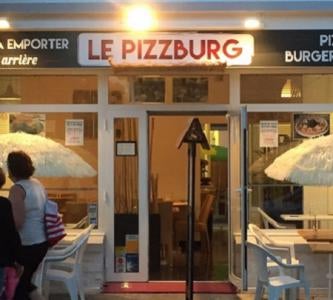
- Brett Wells - Francophone Linguistic Landscapes
Last year Amani Attia (LCTL, Arabic) and I collected photographs of linguistic landscapes in Paris. We have used these materials in courses this past year on the Oakland campus and I also used them in my stylistics course on the Pitt-in-Paris program as we compared field examples of bilingualism and translation in public advertising. It is interesting to see that while Paris may be the world's largest French-speaking city, it has become, like all other major metropolitan areas, a global Anglophone city as well. Gallo-Euro-English as defined by Jennifer Jenkins (2009) is alive and well in Paris as a commercial and cultural medium. I am currently adding to the corpus of photos, now that we have established stylistic categories in which to place them. In the summer of 2017, supported by a Bowman Grant, I was able to photograph linguistic landscapes in Montreal, a city that, despite its centuries-old and extremely powerful Anglophone minority, presents linguistic landscapes with a much greater proportion of French language signage than many parts of Paris.
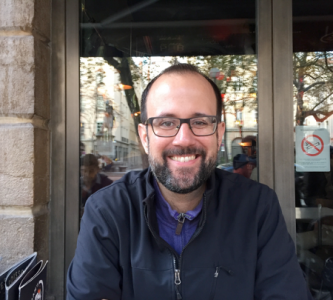
- David Pettersen - French Banlieue Cinema
My current book project seeks to bring a new approach to banlieue films or rather, popular French films that rework the iconography and tropes of the banlieue cinema genre, by fusing them with genre formulae more traditionally associated with Hollywood cinema, especially its low status B-genres, including horror, musicals, science fiction, action-adventure, gangster films, and interracial buddy comedies. Since the 1990s French banlieue films have evolved into a genre that provides a recognizable set of locations, character types, and narrative tropes—ones that have endured across several decades and a diverse set of directors. Much of the scholarly work on banlieue cinema has treated it through a sociological and contextual lens, measuring the degree to which individual films and directors represent the suburbs accurately and gauging what kind of progressive political interventions they make. By analyzing the different transnational genres that have mediated the banlieues in popular French cinema, I show how a body of French popular films seeks to challenge France’s culture of universalism and change public misperceptions of the banlieues and its residents in ways that are complementary to, but distinct from, other banlieue films that take a militant, sociological, or documentary approach.
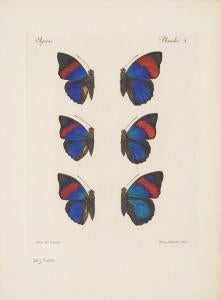
- Kaliane Ung - Wounded Writings
My current book project “Wounded Writings: Disability in France” focuses on first-person accounts of disability across literary genres. The manuscript is structured around four “situated experiences” of disability (the war wound, mental illness, neurodivergence, and skin disorders) that display four different ways of negotiating the articulation of first-hand experience and the search for community. By investigating writing as a performative and transformative act, it offers a reassessment of agency, through self-invention, in the face of adversity. It argues that writing is a tool for survival when illness and suffering alter the body and claims that in modern France, the “wound” becomes a site of transformation. It explores the multiple ways in which the text transforms the body and invents new patterns of resilience and plasticity after a disabling event. Aspects of this project are derived from the collective digital humanities project undertaken in her health humanities courses “Ailing Bodies: Narratives of Health and Illness” and “Plagues and Pandemics: Public Health in the Francophone World.”
This project has received support from the Center for Bioethics and Health Law, the Pitt Momentum Funds and the American Council of Learned Societies (ACLS).
In my next project, I will study French tales of body horror on reproductive justice, focusing on the construction of sex and gender through a discourse on the animal world.
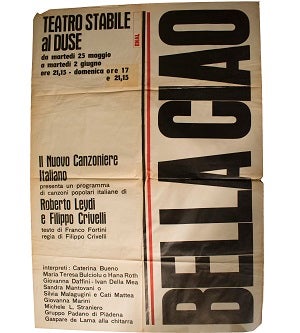
- Rachel E. Love - An Italian Songbook for a Revolution
In my research, I examine how media, music, and cultural exchange informed activist movements in Italy. My current book project explores the media and performance of political protest during the 1960s. As neo-fascist movements return to the mainstream, anti-fascist performances have also regained their power, now aided by Internet virality and social media. In particular, “Bella ciao” has grown from a northern Italian partisan song to a transnational and infinitely adaptable anthem of resistance against authoritarianism. My study traces the revolutionary use of song in Italy through a critical history of a leftist musical collective, the Nuovo Canzoniere Italiano (NCI), founded in Milan in 1962. Using performances, recorded albums, and the power of scandal, the NCI contended that oral histories and lower-class voices offered a revolutionary form of cultural expression. Drawing on extensive archival research and my own interviews with former members, my book argues that the NCI harnessed a musical counterculture that challenged party politics in Italy and conquered space for working-class perspectives. In doing so, they anticipated many of the challenges later posed by the student and worker movements, played a crucial role in the Italian new left, and created a soundtrack to 1968. I am currently writing a chapter on how the reception of the NCI’s recorded albums connected to anxieties about authenticity and the emergence of young people as a social, cultural, and political force. (Image credit: Roberto Leydi and Filippo Crivelli, Il Nuovo Canzoniere Italiano presenta Bella ciao, program (La Grafica Cremonese, 1974))
